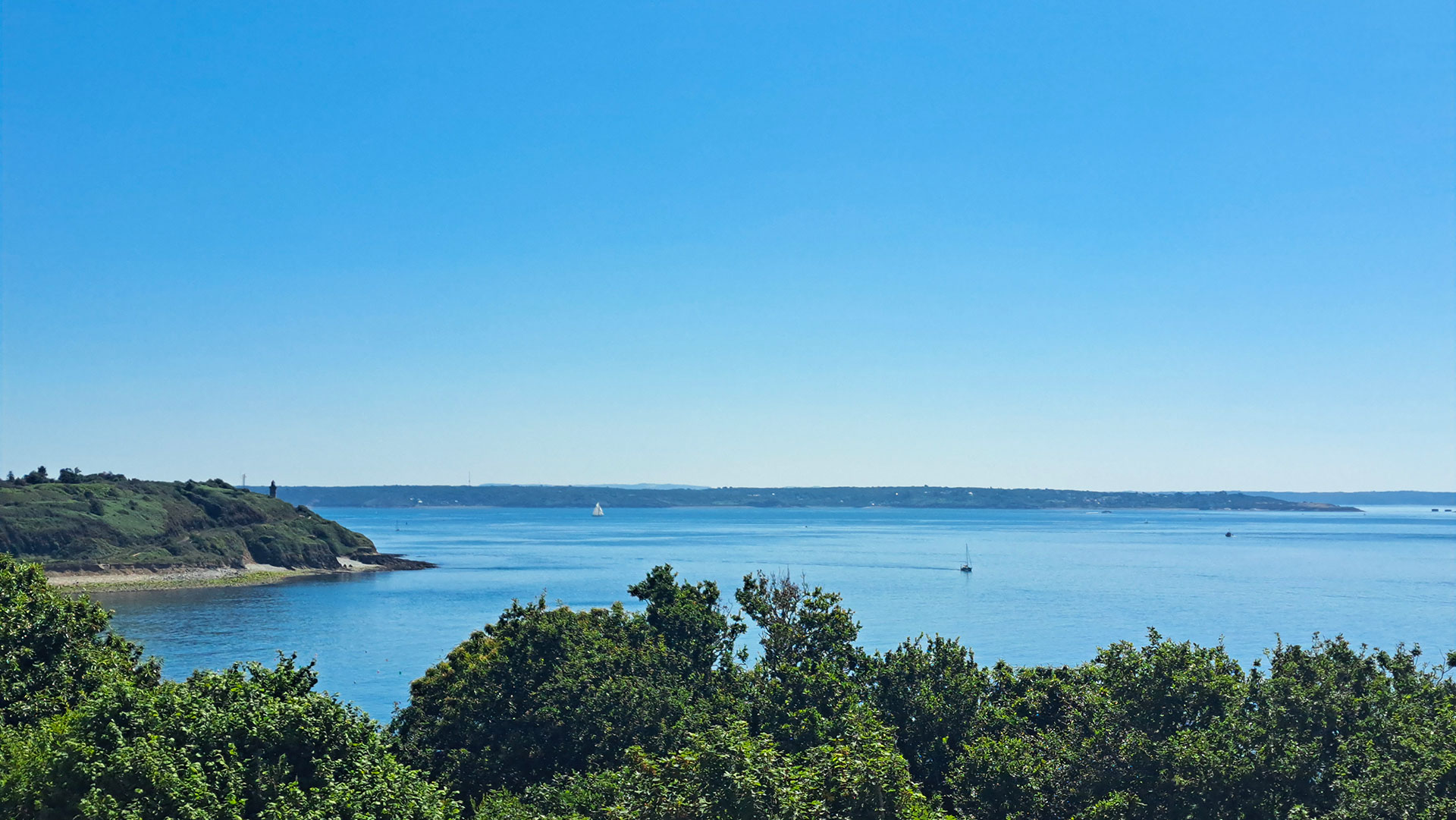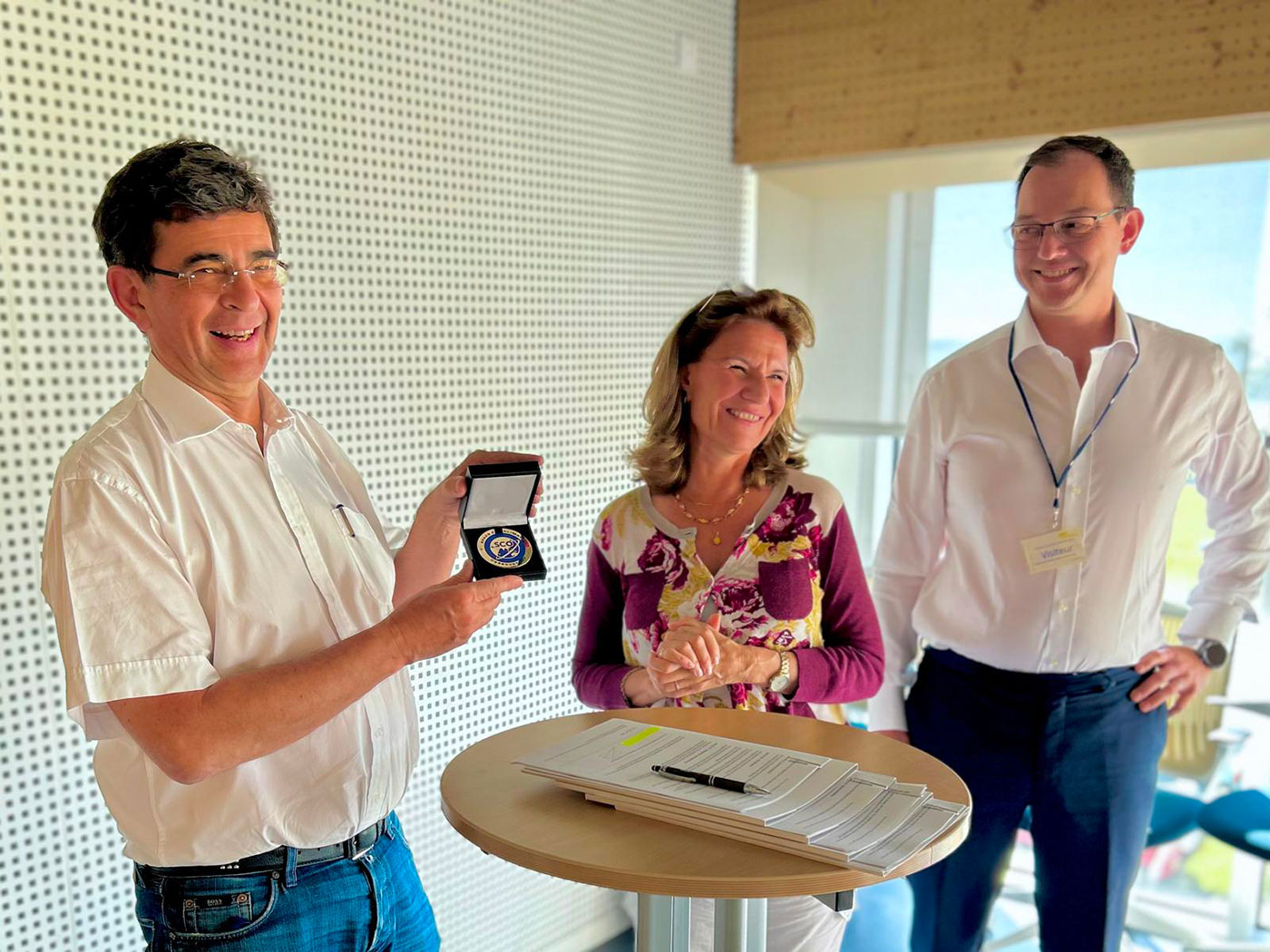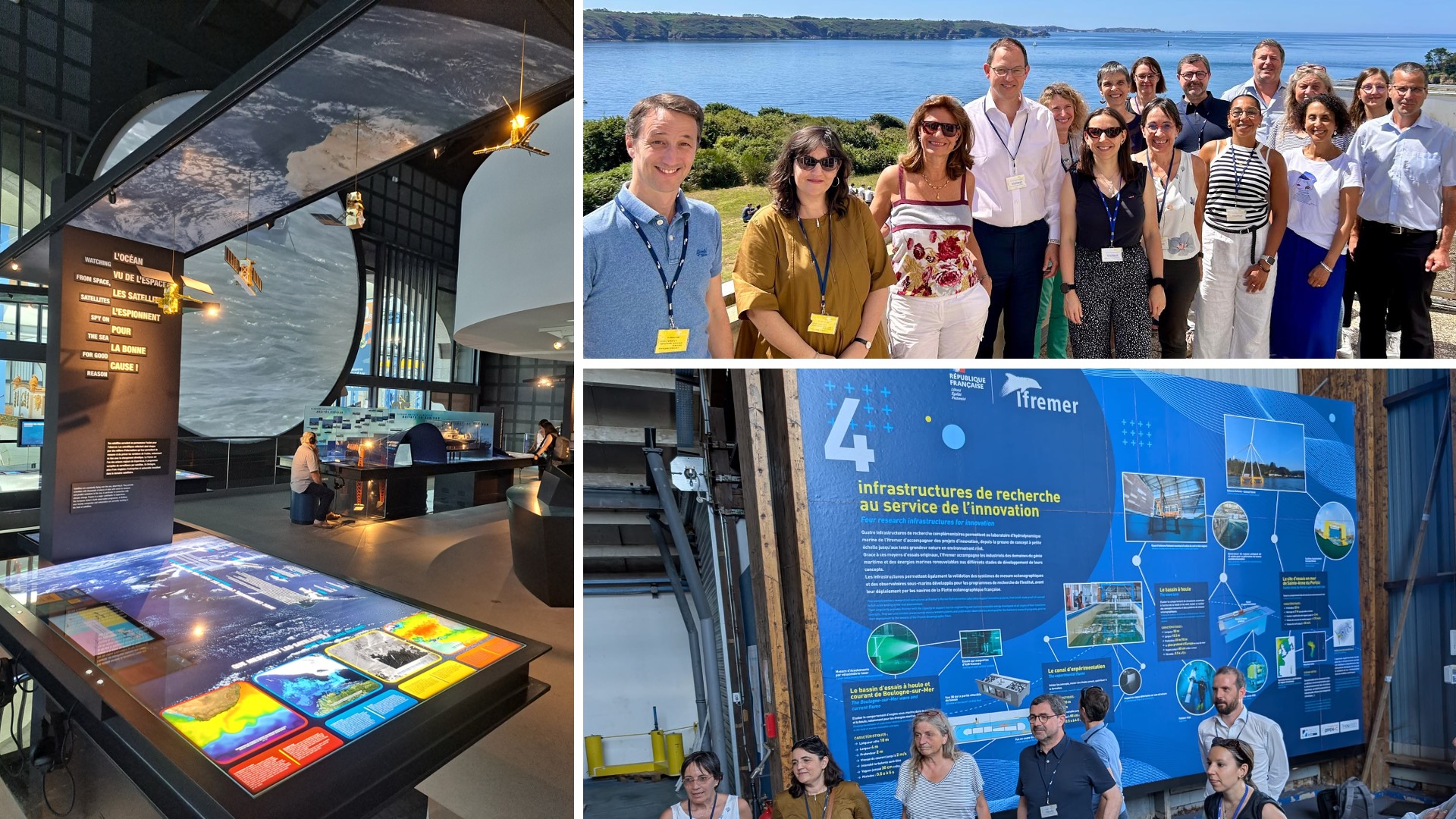13th meeting of SCO France
Ifremer becomes the 55th signatory of the SCO Charter
IOC proceedings
|
👉 "From the depths to the surface, from the coast to the open sea, Ifremer is the only French research institute entirely dedicated to the ocean." The session opened with a fascinating presentation of Ifremer by Chantal Compere, Scientific Director. |
Created in 1984, Ifremer is a key player in marine research in France and operates the French Oceanographic Fleet (ranked 5th in the world). Present on all of France's coastlines and in the three major oceans, it is committed to sustainable ocean management, the protection of marine ecosystems, and the sharing of marine data. Combining research, innovation, and support for public policy, the Institute is strengthening its focus on environmental transitions and scientific outreach to the general public and young people, "who will be our researchers of tomorrow." |
👉 Describing a particularly busy period for SCO International, Alexia Freigneaux, SCO International Relations Officer at CNES, reviewed the highlights of the past five months, including a dynamic focus on the SCO's participation in the GEO Global Forum in Italy and the Living Planet Symposium organized by ESA in Vienna, before concluding with the agenda intense until the end of 2025.
👉 Taking over for a review of SCO France, Frédéric Bretar, SCO project manager at CNES, detailed the composition of the project portfolio, "which is flourishing in various directions: towards the commercialization of services, the opening of open-source platforms, and the development of new services." A review of the SCO mission was organized at CNES to "verify that we are fulfilling our initial contract" and in particular to ensure that the accredited projects meet the four fundamental criteria set out in the International Charter in order to "nurture our ecosystem":
- Responding to the challenges of climate change
- Respond to a user need
- Design a functional base capable of scaling up and adapting to other contexts (community feedback, open-source elements)
- Build a long-term trajectory that benefits everyone (marketing of a service, follow-up via infrastructures and hubs such as Théia and other funding agencies)
👉 The participants then discussed the organization of the Call for Projects, which will open on September 1, 2025, calling in particular for the re-engagement of reviewers who examine the submitted applications. As Laurence Monnoyer-Smith, Director of Sustainable Development at CNES, points out, "by allowing us to carry out several cross-checks of each proposal, our multidisciplinary approach gives us a high level of expertise that enhances the relevance of the selected projects."
👉 A quick update from Karol Barthelemy, editorial manager, highlights the effectiveness of the LinkedIn network in relaying information from the website, which is the hub for all SCO information. Referring to the attention paid to each communication channel and medium, she also mentions the redesign of the SCO Portfolio and the monthly newsletter (subscribe here 😉 ).
👉 In terms of awareness-raising, Célie Losada, SCO project manager at CNES, presented the new teaser for SCOdyssey, a poetic online game that introduces SCO to the general public. Welcoming this new initiative, Célie pointed out that "SCO is investing in new formats for popularization and discovery that are already being picked up by the national media."
Presentation of IPEV
|
Plouzané is definitely a hotspot for French science: almost opposite the Ifremer headquarters is the IPEV, the Paul-Émile Victor French Polar Institute. David Renault, its new director, joined us to present the institute, a national research establishment in polar and subpolar regions. Responsible for several stations and refuges in remote areas with extreme climates, the IPEV is currently conducting 78 projects, several of which are related to climate dynamics and adaptation to climate change, for which the IPEV has significant satellite data needs. As the leader of Cartovege, David naturally drew on this remarkable SCO project to give examples of how satellite images can be used to generate habitat maps, observe their evolution, and generate simulations in relation to climate change. |
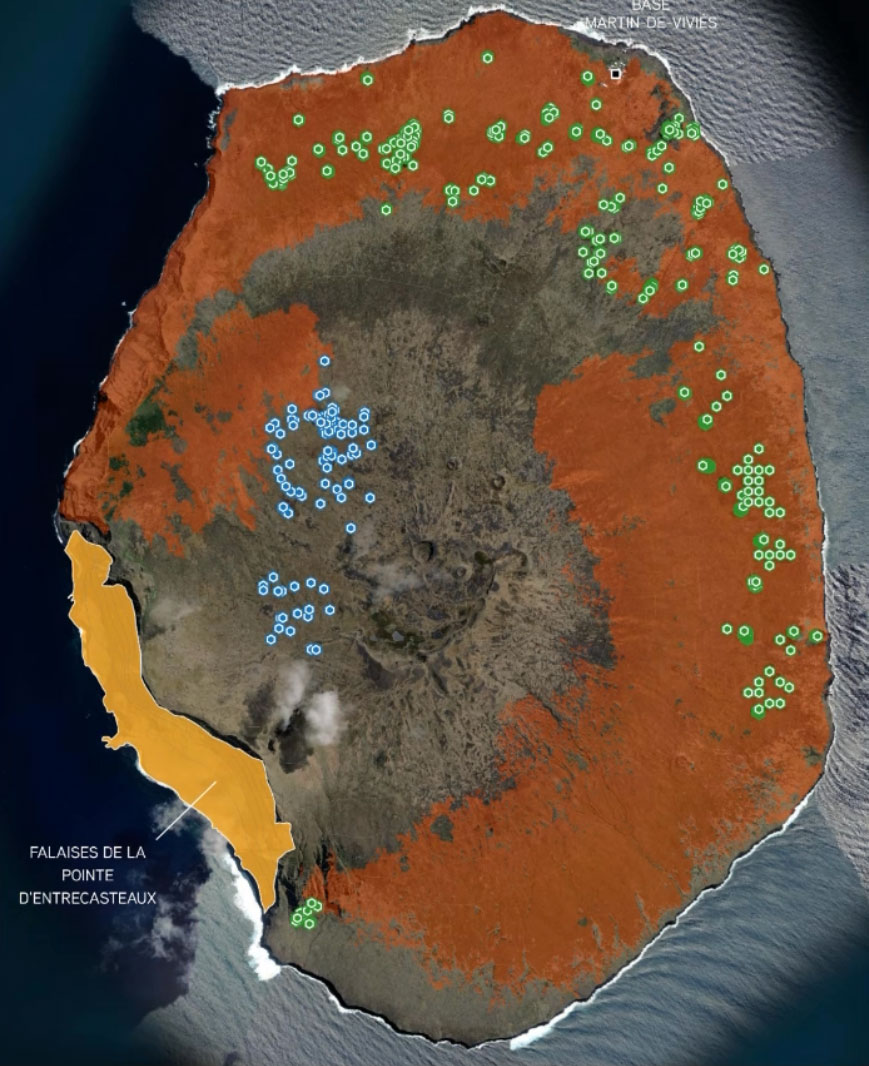
▲ Carried out just before the fire that ravaged nearly 60% of the Amsterdam island in January 2025, the field surveys and satellite images acquired as part of Cartovege2 provide a valuable baseline that will enable the recovery of vegetation to be monitored. Pléiades image © Airbus DS |
Focus on the BioEOS project
|
Also present in Plouzané, Touria Bajouk, pilot of BioEOS, enriched the session with updates on this SCO project led by Ifremer. BioEOS brings together 27 multidisciplinary experts to develop, using satellite observations, indicators for monitoring coastal biodiversity on a large scale, particularly in overseas territories. It responds to an urgent need for data in the face of the collapse of ecosystems (particularly seagrass beds and coral reefs) under climate and human pressure. The aim is to characterize the spatio-temporal dynamics of this biodiversity and propose status indicators that meet international standards. Ultimately, a demonstrator will provide a comprehensive overview of everything that exists in a given area, with innovative synthesis products. |
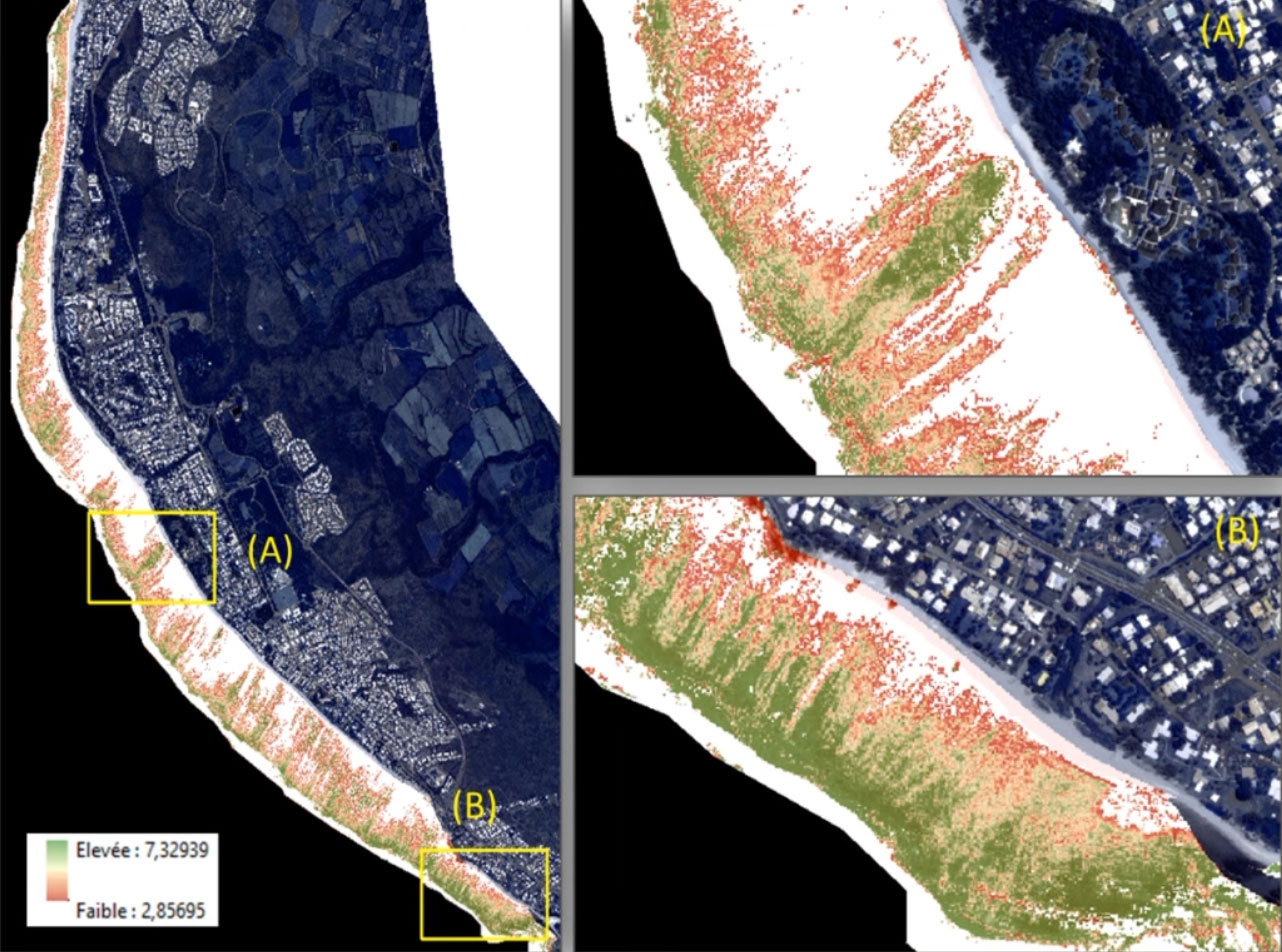
▲ BioEOS is based on four use cases in the southwestern Indian Ocean, such as the dynamics of coral cover shown here. The project is also creating a completely new indicator of coral health. © BioEOS |
An oceanic afternoon
Participants enjoyed a number of targeted visits, starting with the Ifremer Brittany Center and its 50-meter-long, 20-meter-deep test basin, which is used to test small-scale offshore wind turbine models. To do this, it has a wave generator and a 12-fan wind tunnel to simulate waves and storms, as well as an instrumented platform. The station's engineers also model environmental conditions using satellite and meteorological data, including IPCC scenarios to ensure the robustness of wind turbines in the face of future climate change. To illustrate this in concrete terms, participants had the privilege of attending a wave test on the instrumented platform, which gave them an insight into the mechanical stresses this places on the stability of equipment in real-life conditions, exacerbated by climate change.
The visitors then went to the museum “Musée 70.8 (by Océanopolis)” in Brest, named after the fact that the ocean covers 70.8% of the planet. There, they were able to see the ocean's inestimable potential as a source of food, energy, and innovation (blue biotechnologies, health, etc.) and enjoy a space tracing the history and future of navigation.
▲ Vertically, satellites play an important role at “Musée 70.8”, providing a wealth of data such as water height, surface winds, currents and eddies, salinity, temperature, etc. On the right, below the group photo taken in front of Ifremer, participants discover the institute's test station. © CNES/SCO
Many thanks to all the participants. See you at the next CIO in January 2026!



